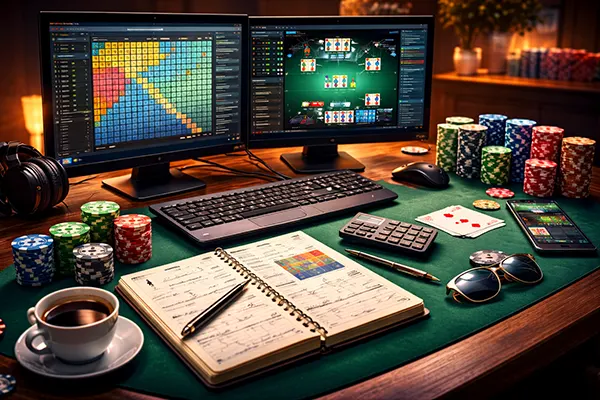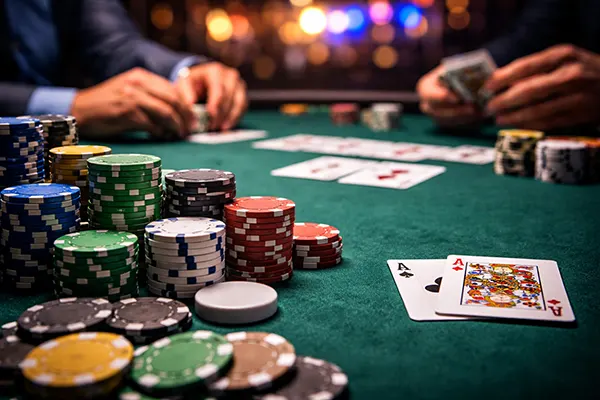
Balancing Strategy in Poker
Achieving balance in poker is one of the most critical skills that separates seasoned players from beginners. Whether you are playing casually with friends or competing in professional tournaments, understanding how to maintain equilibrium in your approach can make the difference between consistent wins and frequent losses. This article explores how balance influences key aspects of poker, including decision-making, bankroll management, and psychological resilience.
Why Balance Matters in Poker
Poker is a game of skill, strategy, and calculated risks. Balance plays a pivotal role in managing these elements effectively. Without balance, players often fall into predictable patterns, which can be exploited by more observant opponents. Moreover, a balanced approach allows players to navigate the highs and lows of the game without succumbing to emotional or financial strain.
From balancing your betting ranges to adapting your strategies for different opponents, maintaining equilibrium ensures you remain unpredictable while maximising your chances of success. Balance is not about playing conservatively; instead, it is about knowing when to take calculated risks and when to hold back strategically. An unbalanced player risks becoming too aggressive or overly cautious, which opponents can exploit to their advantage.
Furthermore, balance helps mitigate the impact of variance, a key factor in poker. Variance represents the natural swings of wins and losses that occur over time. Balanced players understand how to handle both fortunate streaks and downswings with composure. They do not allow a few bad beats to influence their strategy negatively or a series of wins to breed overconfidence. Maintaining equilibrium is an ongoing effort that requires continuous self-awareness and adjustment.
Key Benefits of Balanced Play
Adopting a balanced approach offers several advantages:
- Unpredictability: Balanced play prevents opponents from easily reading your strategies, making it harder for them to counter your moves. This keeps you one step ahead in competitive games.
- Control: It helps you avoid overextending your bankroll or falling victim to tilt after a loss. A controlled approach ensures that emotions do not dictate your decisions.
- Long-term Success: A balanced mindset fosters consistency, a hallmark of successful poker players. Over time, this consistency translates into a stable win rate and improved performance.
- Adaptability: It enables you to adjust your strategy dynamically based on changing circumstances during a game. Whether facing an aggressive player or a tight opponent, balance allows you to respond appropriately.
Balancing Your Bankroll
Bankroll management is the foundation of a sustainable poker strategy. Without proper balance in handling your finances, even the most skilled players can face significant setbacks. Your bankroll should act as a buffer, protecting you from the inevitable variance inherent in poker. A balanced bankroll ensures that you can continue playing despite occasional losses, preserving your ability to participate in future games.
To maintain financial balance, it is essential to separate your gaming budget from other financial obligations. This distinction allows you to play responsibly without compromising your personal finances. Furthermore, setting clear goals for both wins and losses helps you stay within your means while keeping the game engaging. Experienced players often use metrics such as the number of buy-ins or big blinds to determine how much they can afford to lose in a single session without jeopardising their overall bankroll.
Balancing your bankroll also involves understanding the stakes you play at. Many players fall into the trap of moving up in stakes too quickly after a winning streak, only to face losses that exceed their comfort zone. A balanced approach requires patience and discipline, ensuring that you only move up when your bankroll comfortably supports it. Additionally, having a stop-loss policy prevents you from chasing losses, a common mistake that can lead to financial ruin.
Practical Bankroll Tips
Here are some practical steps to balance your bankroll effectively:
- Set Limits: Decide on the maximum amount you are willing to invest in a session, and stick to it. This safeguard prevents impulsive overspending.
- Understand Variance: Recognise that poker involves winning and losing streaks. Balance helps you weather the downswings without undue stress.
- Scale Your Stakes: Play at stakes that align with your bankroll size, typically no more than 5% of your total bankroll per game. Staying within this range protects your longevity as a player.
- Track Your Progress: Keep a detailed record of wins, losses, and expenses to analyse your performance over time. Understanding these trends helps you make data-driven decisions about your game.

Maintaining Emotional Balance in Poker
Poker is as much a mental game as it is a strategic one. Emotional balance is essential for making sound decisions, especially under pressure. Without it, players can fall into “tilt,” a state of emotional distress that often leads to poor judgment and unnecessary losses. Emotional balance ensures that you approach each hand with a clear mind, regardless of the outcome of the previous one.
Maintaining emotional balance involves recognising your triggers and implementing strategies to stay calm during intense situations. For instance, understanding the psychological impact of a bad beat can help you avoid overreacting. Similarly, celebrating a big win modestly prevents you from becoming overly confident and making reckless moves. A balanced emotional state allows you to focus on the game itself rather than being distracted by external factors.
In addition to recognising triggers, players should develop habits that promote a positive mindset. This includes regular breaks, as long sessions can lead to fatigue and reduced focus. Additionally, many players benefit from pre-game rituals such as visualisation exercises or meditation to prepare themselves mentally. These practices foster resilience, enabling you to handle both successes and setbacks with poise.
Tips for Emotional Control
Consider the following practices to build emotional resilience:
- Practice Patience: Avoid rushing decisions, even when the stakes are high. Take the necessary time to evaluate your options.
- Take Breaks: Step away from the table when you feel frustration or overconfidence taking over. A brief pause can help you regain focus.
- Focus on the Process: Concentrate on making the right decisions rather than obsessing over results. This shift in focus helps you maintain a balanced mindset.
- Reflect and Learn: After each game, evaluate your emotional responses and identify areas for improvement. Constructive reflection leads to growth as a player.
By prioritising balance in your poker strategy, you not only improve your gameplay but also enhance your overall experience. Balance ensures that you approach the game with a clear mind, a sustainable bankroll, and a winning attitude, ultimately paving the way for long-term success.



